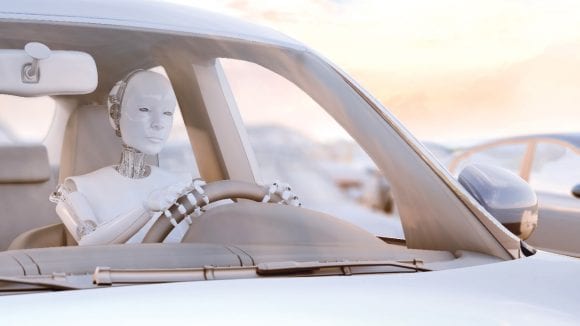So a robot took your job. Now who pays you?
We’ve all read the headlines, the robots are coming, industries are dying and the future viability of full-time work is bleak as best. So what are the solutions to automation taking jobs?

![]()
header.search.error
We’ve all read the headlines, the robots are coming, industries are dying and the future viability of full-time work is bleak as best. So what are the solutions to automation taking jobs?
If as many as half of jobs are susceptible to being taken over by robots, could the topic of a universal basic income become less of a political debate and seen more as a human necessity?

Universal basic income, or UBI, is a divisive topic. People are either for, or against it, and whichever side they take, it’s rarely an easy to task to convince them otherwise. Both Finland and Canada have recently announced the end of UBI trials. Critics have cried “see, I told you so!” while advocates remind them these pilots were always only ever meant to be finite, they met their respective deadlines. While much of the conversation around UBI is very political, there is a new argument that just may have the power to sway even some of the toughest naysayers.
We’ve all read the headlines, the robots are coming, industries are dying and the future viability of full-time work is bleak as best. The question is, does the age of automation represent an "every person for themselves" future or should governments get involved?
“A good, well-functioning society will find ways of providing for the people who lose their sources of income as a result of technological change,” says Robert M. Solow. The Nobel Laureate may have won the prize in 1987 but his views on the changing workforce landscape, due to technology and automation, are just as relevant today, if not more.
“The thing we want to protect in the future is income, not particular jobs,” says Solow. “If we’re going to protect income and not jobs, it means we’re recognizing the possibility that jobs may no longer be the standard way of earning an income.”
A good, well-functioning society will find ways of providing for the people who lose their sources of income as a result of technological change.
If governments are to play an important role in distributing incomes and providing a level of financial security to citizens, it could mean more taxation, but not in the traditional sense.
“Then there is the question about who owns the robots? And taxing them, that will certainly be an important part of it,” says Solow. “You tax what there is available to tax.”
There’s always going to be room in this world for human beings.
Edmund S. Phelps is a Nobel Laureate who sees technology as our ticket to global prosperity. For him, innovation is a vital ingredient but so is inclusion.
“There’s always going to be room in this world for human beings,” says Phelps. “If all the new things are so esoteric and so demanding that only a talented few can do it, then what are the rest of us is going to do to keep our minds active, to be stimulated, to be engaged, challenged, amused?”
Innovation only flourishes when everyone is involved, argues Phelps, and for everyone to be involved, certain safety nets need to be in place. Fellow Nobel Laureate Paul R. Krugman couldn't agree more.
Krugman has been vocal in his stance that should robots make us redundant, we should be providing everyone with a basic income. And this should give us more than just enough money to eat, says Krugman.
“What we can do is ensure that people have enough to purchase the necessities – and necessities actually meaning things that are necessary for them to be full participants in their own societies,” says Krugman.
Perhaps the only question that remains is who will write these new rules – humans or robots?
Get the latest Nobel Perspectives updates delivered to you.
Get the latest Nobel Perspectives updates delivered to you.